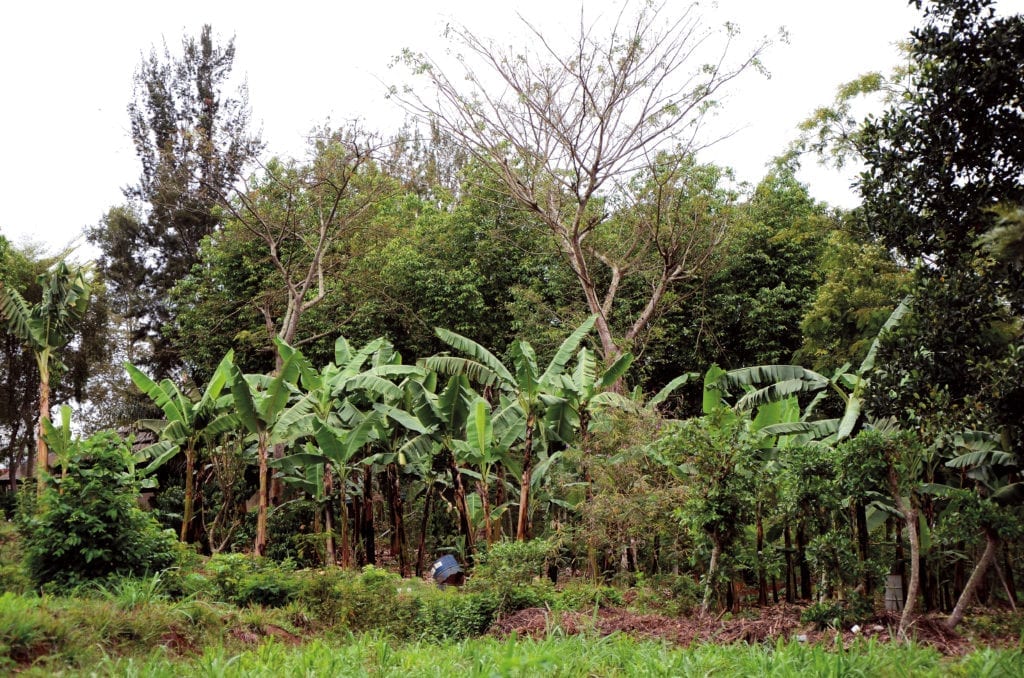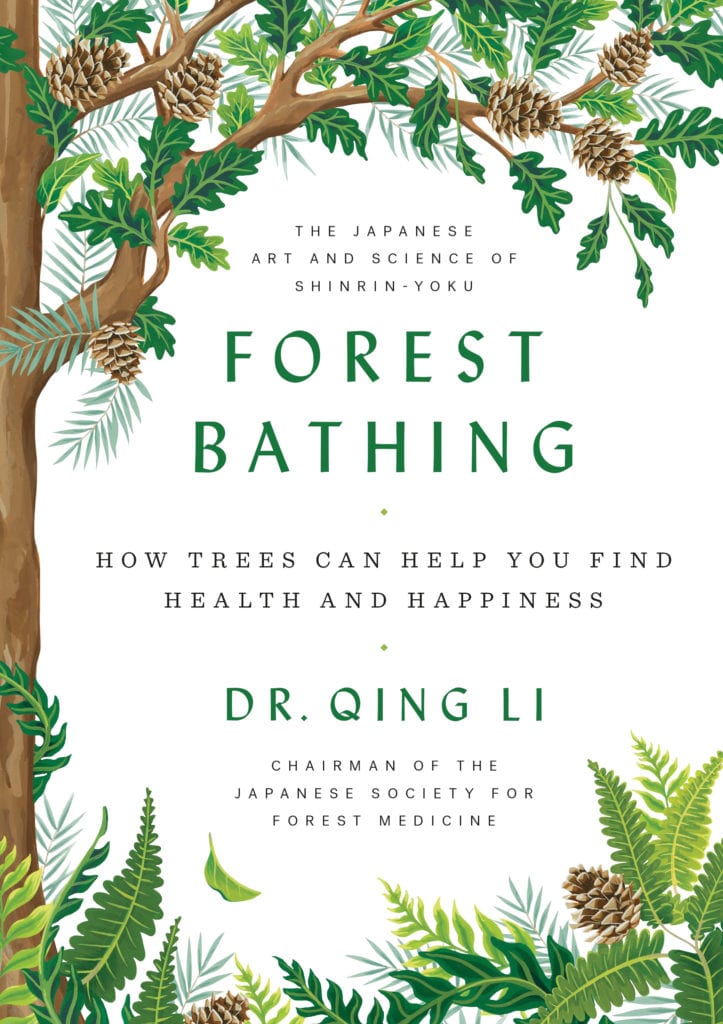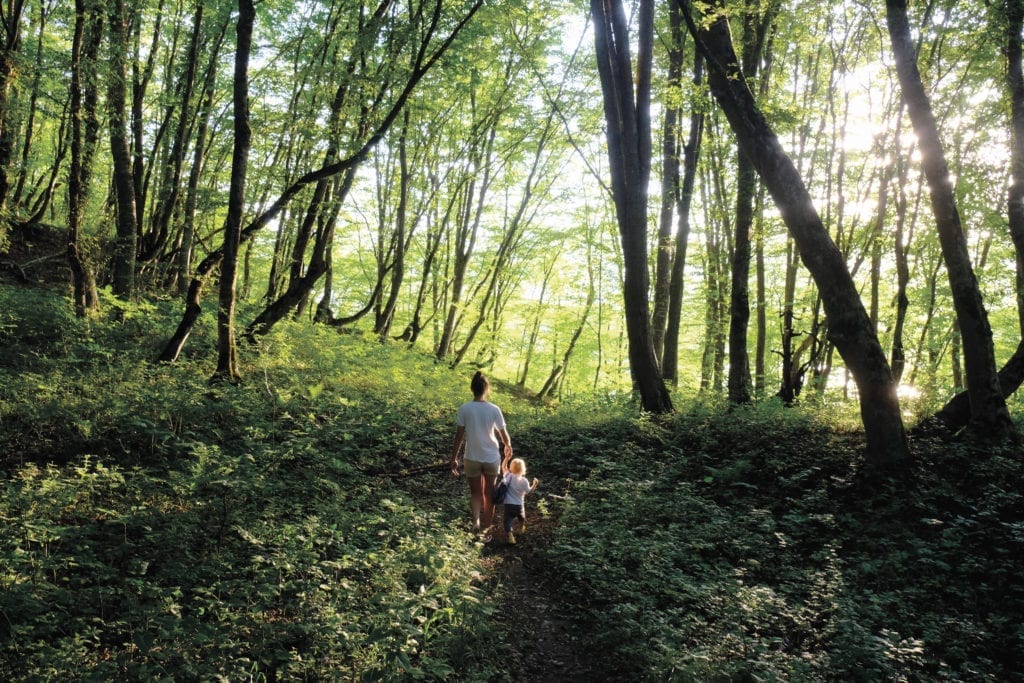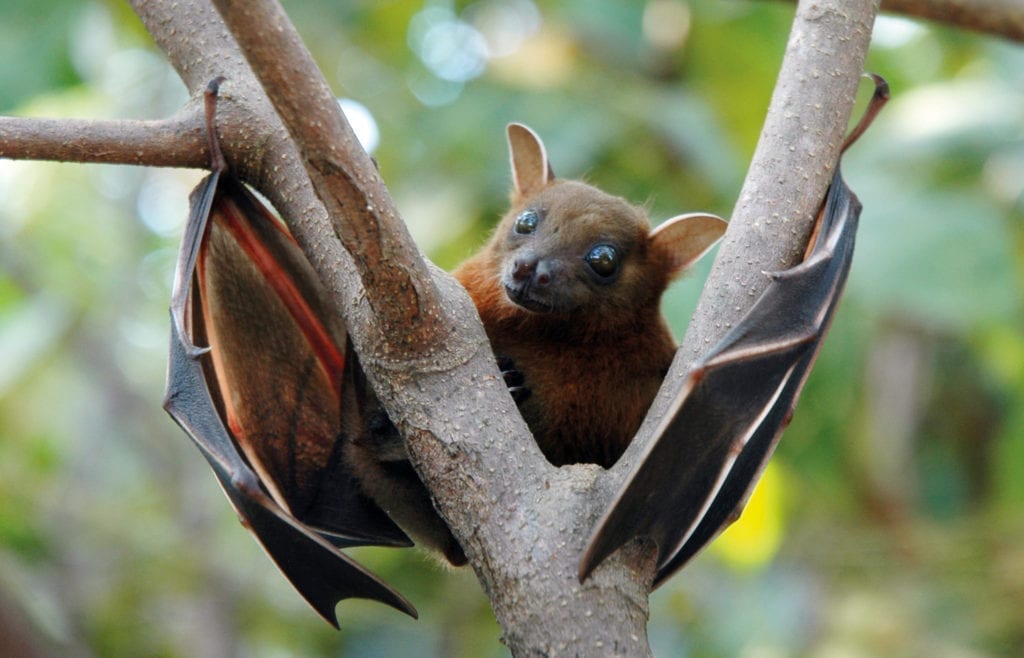Forests Are Allies of Human Health
Forests create a wide variety of ecosystem services essential to human health and well-being on a daily basis. They are the world’s largest terrestrial carbon sink and the main source of terrestrial biodiversity. They provide 75% of the freshwater available to humanity, supply us with a natural pharmacy with species known for their medicinal properties, act as barriers against pandemics, generate edible products consumed by 100 million Europeans, and provide energy for more than 2 billion people on Earth.
Forests alone represent one of the main pillars of human development, guaranteeing harmony with nature and peace between nations. It is essential to recall that now, more than ever, our future depends on forests in a context where humanity faces increasing health risks; the World Health Organization (WHO) tries to warn us against and where the COVID-19 pandemic (which killed more than 2.5 million and infected tens of millions of people in a year), foreshadowing the emergence of even more severe pandemics in the future.
Forests and food security
Berries, mushrooms, plants, roots or game: forests are genuine open-air pantries that provide for the needs of 25% of the world’s population. They also help to provide clean water to agricultural land by protecting watersheds and are therefore essential for agriculture and food security at a global scale.
Since our health heavily depends on our diet, the FAO estimates that global agricultural production is expected to increase by 60% by 2050. This figure reflects the need to feed the world’s population, expected to exceed nine billion people by the middle of the century. Yet, agriculture is by far the leading cause of global deforestation. More than half of the world’s deforestation is directly linked to the conversion of forests into crops or pastures. This has a direct impact on food security and health, especially for the most vulnerable populations witnessing the reduction of water and edible products from trees.

Reconciliating forests and agriculture is essential and possible. Substantial benefits can be provided by conserving or planting trees on farmlands and creating agroforestry systems: supplying livestock with fodders, creating tree covers to protect underlying food crops, or enriching soils with nutrients released by the trees. The presence of diversified forests near crops is also instrumental in boosting agricultural productivity, particularly through pollination. Butterflies, bees, types of flies, birds (hummingbirds) or mammals (bats) provide for about one-third of the world’s food production (fruit, vegetables, oilseeds, certain legumes, coffee, cocoa, spices), three-quarters of which are food crops. Consequently, without the services provided by forests, crops, food – and therefore human health – would be jeopardized.
Forests and human well-being

Forests have a direct impact on our physical and mental health. Following its emergence in the early 20th century in Europe as a cure for tuberculosis, sylvotherapy, also called “forest bathing” or “Shinrin-Yoku”, is extensively used in Japan, where it was recognized as a medical treatment in 1982. Studies conducted by Dr. Miyazaki and Qing Li prove how a walk in the forest benefits our body and health. When living or walking in the forest, human beings benefit directly from the defense molecules emitted by trees: phytoncides and terpenes play the role of volatile essential oils which increase the number and activity of lymphocytes (guarantors of our immunity) while decreasing blood sugar levels and cardiovascular risks.
Forest bathing also impacts our moral health. Phytoncides and terpenes increase the activity of the parasympathetic nervous system, reducing stress hormones and blood pressure, influencing our ability to relax and sleep better. Furthermore, the risk of depression is reduced by 10% if you walk in a forest or wooded area for half an hour a week. Being in contact with trees reinforces these calming effects, allowing us to absorb their energy and draw our strength and well-being from their vitality.
Trees also affect social cohesion: within cities, wooded areas are conducive to encounters, contribute to reducing isolation and strengthening social ties. Urban green spaces also known to help to reduce crime rates. In the United States, Baltimore has one of the highest crime rates in the country; however, areas containing forest covers have seen a 12% drop in crime.

Forests, our allies against heat waves and pollution
The benefits of trees in the city are multifold. They improve biodiversity, play an important role in rainwater management, prevent soil erosion and reduce noise pollution. But they also help reducing urban pollution and heat islands, positively impacting the health of urban inhabitants. Knowing this is crucial to building the cities of tomorrow, which will be home to three-quarters of the world’s population. Today, air pollution has become the main enemy of the health of city inhabitants. According to the World Health Organization (WHO), it kills 3.7 million people each year worldwide. This number could almost double by 2050, climbing to 6.2 million people. Moreover, the WHO considers that heat waves could cause the death of 256,000 people each year in urban areas by the middle of the century.
However, the trees’ capacity to absorb CO2 and produce our oxygen is combined with their ability to capture other atmospheric pollutants, such as fine particles, mainly emitted by heating buildings and car use, and classified by the WHO as carcinogenic, responsible for cardiovascular disorders. In addition, when producing humidity and providing shade, trees help to cool the atmosphere and thus counter increasingly frequent heat waves. Since high temperatures lead to a poor air circulation and to increased pollutant emissions, trees also have an indirect effect on pollution.

Planting urban forests would thus help reducing the concentration of fine particles by 20% to 50%, according to a report by the NGO Nature Conservancy, and cooling the ambient urban air by 2 to 8°C, according to the FAO. Urban forests would then help to reduce our air-conditioning needs by 30% and save from 20-50% of energy.
Our health depends on the health of forests
Introduced in the early 2000s by the World Health Organisation (WHO), the Food and Agriculture Organisation (FAO) and the World Organisation for Animal Health (OIE), the “One Health” concept is a reminder that human and natural ecosystems, particularly that of forests, are interdependent. One of the consequences of deforestation is the increased contact between humans and wild animals. Viruses and diseases carried by these animals, which used to be confined to remote areas, now find new potential victims among human populations. Climate change is also an aggravating factor, as it encourages many animal species to migrate in order to survive, since their natural habitats were modified by climate change.
Nipah, one of the most dangerous viruses we know of, illustrates how animals transmit infections to humans, probably as a consequence of deforestation. This virus appeared in Malaysia in the late 1990s, in a region highly impacted by deforestation due to the development of pig farming. The fruit bats that lived in the forest were forced to find other food sources, and therefore fed in the orchards of the nearest farms. Their saliva and urine contaminated the fruit eaten by pigs, which in turn contaminated nearly 300 locals.

COVID-19 is also part of the long list of viruses carried by wildlife. Coronaviruses are quite common in some wild animals, particularly bats, but also in birds. An article published in March 2020 in the journal Nature describes the results of a study conducted by researchers on a COVID-19 genome. They concluded that a very similar virus is carried by bats and pangolin species, reinforcing the risk of human transmission.
Through the destruction of forest ecosystems, deforestation creates imbalances conducive to the emergence of new infectious diseases. This phenomenon was demonstrated by a 2016 international study conducted by French Research Institute for Development, Inserm and Bournemouth University researchers. If these ecosystems continue to be destroyed, pandemics are likely to become increasingly frequent.
Forests play a key role for human health. Preserving forests around the world is not only about protecting biodiversity, it is also about preserving our health. We all have a role to play in this: as citizens, we have to question our lifestyles and consumption habits but also encourage our governments to implement more environmentally friendly development methods; as companies, we need to measure our activity’s footprint on biodiversity and implement appropriate strategies. While the UN Decade for Ecosystem Restoration begins in 2021, many international initiatives are flourishing, seeking to act as quickly and strongly as possible to restore forest ecosystems and reforestation on a global scale over the next ten years. These complementary and urgent actions will together provide a significant part of the global response to the climate and biodiversity crisis, and will help to preserve human health as well as preventing future health crises.